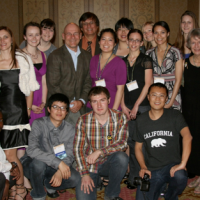Increasing Women and Underrepresented Minorities in Computing Research Careers:
CRA-W and CDC have been working since the mid 1990s to encourage women and underrepresented minorities, respectively, toward graduate school and research careers in the computing field. In 2005, the two organizations collaborated on a proposal to the National Science Foundation’s Broadening Participation in Computing (BPC) program and in 2006 they were awarded funding. The result was the Widening the Research Pipeline Alliance, one of 16 Alliances currently funded by the BPC program. Our alliance manages programs that encourage individuals to begin and remain on the path to a research career.








